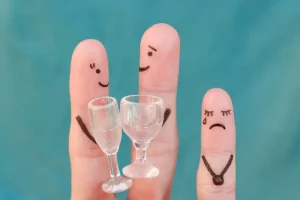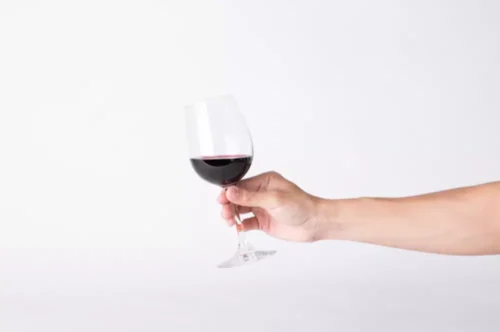Alcohol Tapering Avoiding the Symptoms of Alcohol Withdrawal

However, even the best-designed tapers can put you at risk for alcohol withdrawal syndrome. For this reason, you should never start an alcohol taper before clearing with your doctor. If you or someone you know is quitting alcohol and experiences seizures, DTs, hallucinations, or other major effects, seek immediate medical attention or call 911 for help. Individuals who’ve consumed higher amounts of alcohol over time can develop life-threatening complications when trying to quit. These complications can develop within a few hours or days and appear in the form of seizures, delirium tremens (DTs), and hallucinations, sometimes even leading to death. For example, healthcare providers usually don’t take patients off antidepressants suddenly; rather, they gradually lower the dosages to help reduce antidepressant discontinuation symptoms.

Can I Just Quit Alcohol Cold Turkey?
It is important to note that prescription medication should not be used for a substitution taper unless it has been prescribed as part of a medical detox program. Alcohol withdrawal is a potentially serious complication of alcohol use disorder. It’s important to get medical help even if you have mild symptoms of withdrawal, as it’s difficult to predict in the beginning how much worse the symptoms could get. Your healthcare provider will recommend and encourage treatment for alcohol use disorder. Healthcare providers typically prescribe short-term medications to relieve the symptoms of mild to moderate alcohol withdrawal.
Alcohol Detox At Vertava Health
You may also find it easier to stick to your taper schedule if you avoid certain places and situations. It is important to note that alcohol tapers are generally not recommended as the best way to stop using alcohol. Most healthcare professionals recommend a medically-assisted detox as the best way to get off alcohol.

Is it Better to Taper Off Alcohol or Quit “Cold Turkey?”
- With kindling, the brain becomes increasingly sensitized to stopping alcohol.
- When you quit alcohol cold turkey, you quit drinking completely and suddenly.
- These symptoms can happen even if you used to drink at relatively low levels, if you were drinking regularly.
- Our knowledgeable and compassionate team is available 24/7 to help get you or someone you care about into treatment and answer any questions or concerns you might have.
- Most healthcare professionals recommend a medically-assisted detox as the best way to get off alcohol.
Quitting any addictive substance can be extremely difficult, but quitting alcohol is often especially so. Many people fail to successfully quit drinking at least once before managing to attain sobriety. Alcohol addiction can be difficult and sometimes dangerous to handle on your own. If you or a loved one is struggling with alcohol addiction, contact us to learn more and get started with alcohol addiction treatment. Seizures can also occur within the first 24 to 48 hours, although these are less likely to occur in people with less severe alcohol dependency. Withdrawal seizures can be a sign of delirium tremens, which can occur as soon as 48 hours after a person’s last drink.
Trying Non-Alcoholic Drinks
When you’re having a good time, you find it hard to stop, especially in the company of friends having the same amount. To stop drinking alcohol, you first need to understand your relationship with drinking. From there, you may need social support, consistent self-care, and new routines that can help redirect your mind.

Long-Term Alcohol Use and Weaning
Because tapering is not the recommended way to stop using alcohol, there is no recommended tapering schedule. If you plan to taper, you must create a schedule that is right for you. This involves directly reducing the amount of alcohol you consume regularly. For example, if you typically drink five beers a night, you might cut down to four, then three, and so on. When you drink heavily and frequently, your brain compensates for the suppressive effects of alcohol by becoming more hyperactive.
Unsupervised Medical Care

Quitting alcohol can be extremely hard, especially without medical support. Further, mental health disorders like anxiety and depression are extremely common in those who struggle with drinking, and how to taper off alcohol these disorders can make it even harder to stay sober. If you have alcohol use disorder and want help, a healthcare provider can guide you to resources and rehabilitation programs to help you quit.
- Being exposed to either form of a trigger can result in unwanted relapse.
- Rather than quitting drinking abruptly (or “cold turkey”), many professionals recommend gradually reducing your drinking (or tapering) over time.
- By avoiding alcohol, you’re taking a big step toward improving physical health.
- Quitting cold turkey involves suddenly stopping all alcohol use, while tapering involves slowly decreasing the amount of alcohol a person drinks daily.
- Here’s how to wean off alcohol—including useful strategies, how to create a tapering schedule, and how to stay safe throughout the process.
- This involves directly reducing the amount of alcohol you consume regularly.
- To successfully taper your alcohol use, finding what works best for you is important.
- If you take prescription medication, continue to take it as directed.
- This includes early symptoms of alcohol withdrawal, such as mild tremors and anxiety.
After this is calculated, make a schedule where you consume your normal amount on the first day and make regular reductions each day after. If you or someone you know is experiencing symptoms consistent with DTs, call 911. DTs can be fatal, and a person going through them should have medical support in a hospital or rehab facility. There are two ways to taper off alcohol—a direct or substitution taper. The success of these strategies will depend on how much you drink and what you drink.